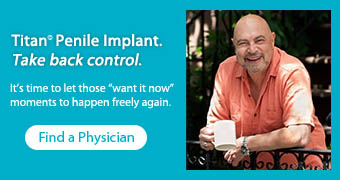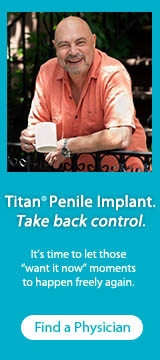I find it strange that many of us that have had RP and could manage erections before op can no longer do so despite nerve bundles being intact..
As I understand it the prostate is primarily responsible for producing seminal fluid - This is ,of course why we now have dry orgasms.
Why is it still believed the testes produce seminal fluid when in fact it is testosterone they produce?
Sorry,I digress, so what has changed? Are the nerve bundles traumatised?
Have I missed something here?
Cotham
Back to basics.
Back to basics.
Keyhole RP May 11 2009 Type 2 Diabetes.
-
Peckerwood
- Posts: 218
- Joined: Tue Aug 23, 2011 10:48 am
- Location: Woodypecker41@gmail.com
Re: Back to basics.
Well, I haven't researched this lately, but I thought the testicles produced sperm and testosterone. The sperm then mixes with the seminal fluid to produce ejaculate.
-
Frank Talk Admin
- Site Admin
- Posts: 666
- Joined: Mon May 18, 2009 11:06 am
- Location: NYC
Re: Back to basics.
Good points.
The testes produce sperm and testosterone as Littlejohn said. The seminal vesicles produce seminal fluid. The prostate produces prostatic fluid. Each fluid functions to provide a bath of nourishment and protection for the sperm when they are deposited in the vagina.
The epididymis (tubes from the testes to the seminal vesicles) are cut during prostate surgery, much as they are for any vasectomy - and are left to sit there. The seminal vesicles are removed as a precaution since they are often the first spread of cancer - and with no prostate, you no longer need them anyway. The prostate removal seals the deal for dry orgasms.
Several traumas happen during surgery. The nerves are hairlike and despite the bundles being saved, some of the nerves in this bundle can certainly be cut or damaged beyond repair. The nerves have to be peeled off the prostate and pulled out of the way. They are traumatised by this and go dormant. Blood flow may also be compromised to the nerves and penis since many blood vessels need to be cauterized during surgery. Everyone is different in this area as well.
So, reawakening the nerves takes time. Healing damaged nerves may or may not occur. Penile therapy can help both of these issues. Since we all heal differently, anatomy can vary slightly, each surgery is different, the outcomes are simply impossible to predict.
Does this help?
The testes produce sperm and testosterone as Littlejohn said. The seminal vesicles produce seminal fluid. The prostate produces prostatic fluid. Each fluid functions to provide a bath of nourishment and protection for the sperm when they are deposited in the vagina.
The epididymis (tubes from the testes to the seminal vesicles) are cut during prostate surgery, much as they are for any vasectomy - and are left to sit there. The seminal vesicles are removed as a precaution since they are often the first spread of cancer - and with no prostate, you no longer need them anyway. The prostate removal seals the deal for dry orgasms.
Several traumas happen during surgery. The nerves are hairlike and despite the bundles being saved, some of the nerves in this bundle can certainly be cut or damaged beyond repair. The nerves have to be peeled off the prostate and pulled out of the way. They are traumatised by this and go dormant. Blood flow may also be compromised to the nerves and penis since many blood vessels need to be cauterized during surgery. Everyone is different in this area as well.
So, reawakening the nerves takes time. Healing damaged nerves may or may not occur. Penile therapy can help both of these issues. Since we all heal differently, anatomy can vary slightly, each surgery is different, the outcomes are simply impossible to predict.
Does this help?
Re: Back to basics.
Yes Admin it does - and it is the first time I have had a full explanation.
Even the professionals do not explain this adequately. Here in UK I periodically man the phones for our national help line.
This info will be useful.
Thank you.
Regards - Cotham.
Even the professionals do not explain this adequately. Here in UK I periodically man the phones for our national help line.
This info will be useful.
Thank you.
Regards - Cotham.
Keyhole RP May 11 2009 Type 2 Diabetes.
Return to “General Discussion”
Who is online
Users browsing this forum: No registered users and 4 guests






